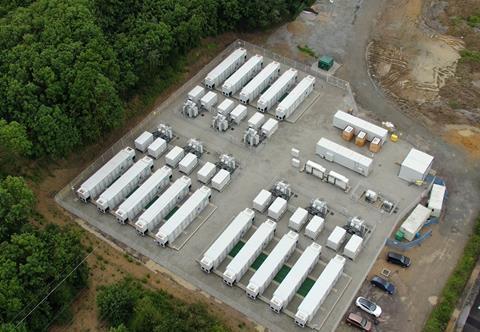
A new battery energy storage system to support Kent’s electric vehicle charging insfrasture has been activated by Pivot Power, part of EDF Renewables, Wärtsilä; and EDF, which claims to be Britain’s biggest generator of low-carbon electricity.
A 50MW/50MWh battery energy storage system has been activated at Pivot Power’s Kemsley site in Kent, which is designed to help support the transition to a decarbonised electricity system and accelerate the UK’s net zero future.
The 50MW lithium-ion battery energy storage system is directly connected to National Grid’s high-voltage transmission network at the Kemsley substation in Kent and will provide essential flexibility to support the integration of more renewables and future-proof the UK’s electricity system.
Wärtsilä has supplied its advanced battery energy storage technology for the project coupled with GEMS Digital Energy Platform, which leverages artificial intelligence and machine learning to enable the intelligent management of energy systems.
EDF’s Powershift product will provide the route to market services for Pivot Power to maximise revenues from the battery across ancillary services (including Dynamic Containment and Reactive Power), wholesale optimisation and the Balancing Mechanism.
The Kemsley battery storage system is the second to go live as part of Pivot Power’s plans to deploy up to 40 similar sites throughout the UK, providing up to 2GW of flexible capacity. It supports EDF Renewables’ strategic plans to develop an additional 10GW of battery storage globally by 2035.
Pivot Power’s first system, in Cowley, Oxford, went live in June 2021, and forms part of Energy Superhub Oxford – a pioneering project the company is leading to showcase rapid electric vehicle (EV) charging, battery storage, low carbon heating and smart energy management technologies.
Pivot Power is replicating its Energy Superhub model, combining grid-scale batteries with high-volume power infrastructure for EV charging, at its next two sites in Coventry and Sandwell in the West Midlands. The company has partnered with Wärtsilä to develop two new grid-scale battery storage systems, which will collectively provide 100MW/200MWh of storage capacity.
For the UK to be on track to deliver its net zero commitments, the company says up to 13GW of new electricity storage needs to be built by 2030. This is crucial to provide the flexibility needed to enhance the reliability of the country’s electricity system and cost-effectively integrate more renewable generation. A smarter, more flexible system could save up to £10bn a year by 2050.
Matt Allen, CEO of Pivot Power, said: “The expansion of our battery storage portfolio is an important piece of the puzzle when it comes to future-proofing the UK’s energy system and accelerating a net zero future. Through this collaboration with Wärtsilä and EDF we are creating more of the low-carbon infrastructure needed to manage the integration of renewables into the grid and power our lives with clean energy.”
Andy Tang, VP, Energy Storage & Optimisation, Wärtsilä, said: “Wärtsilä’s ambition is to enable a 100% renewable energy system in the UK. To make this a reality, more energy flexibility is vital for balancing out the intermittent nature of this form of generation and ensuring a resilient energy system. Energy storage sits at the heart of this, and we are proud to be collaborating with Pivot Power to help drive the change that the UK’s energy infrastructure needs.”
Stuart Fenner, head of Energy Trading Services at EDF, said: “EDF are delighted that the Kemsley battery site is successfully operational and providing essential flexibility to the energy system. We are proud to be optimising this asset with our Powershift platform and partnering with Pivot Power. This deal reinforces our commitment to helping Britain achieve net zero carbon emissions and supports our position as a leader in battery optimisation services in the UK.”





















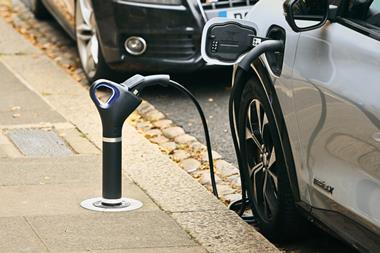
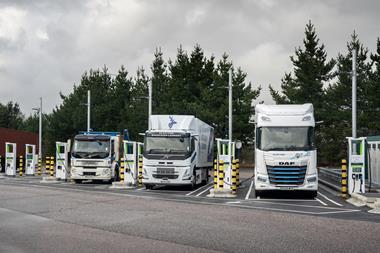
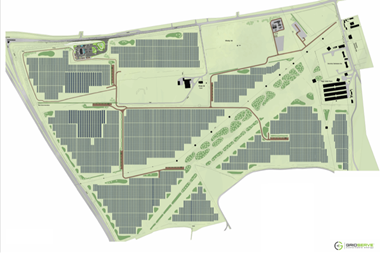
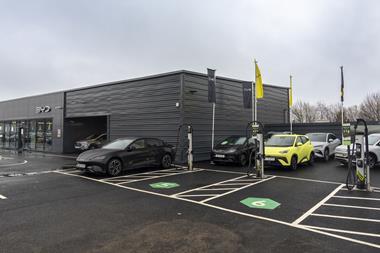
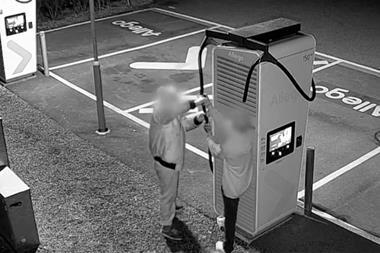





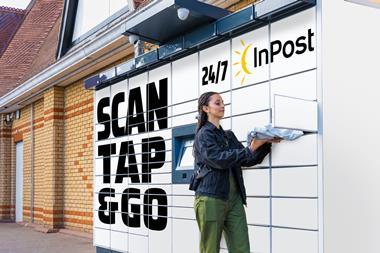
No comments yet